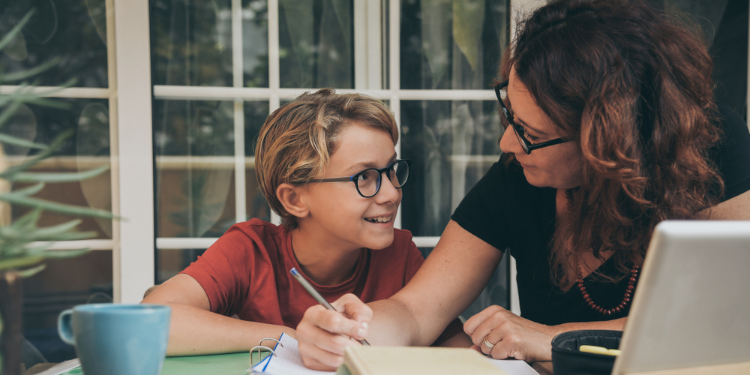Over the past three decades, homeschooling has become increasingly popular, and even more since the early days of the COVID-19 crisis. Many families have even chosen to move abroad so that they can homeschool their children by choice. While this teaching method is not framed by specific legislation, it seems to be particularly appreciated in Europe, especially in Austria, Belgium, Norway. Elsewhere, it is very widespread in Australia, New Zealand, the United States and Canada.
What is homeschooling all about?
Homeschooling is a choice made by parents for their children, often based on their religious and moral beliefs. However, all parents have an obligation to ensure that their children have access to education from an early age. This is recommended by the constitution of all countries around the world. Many states also have their own education-related laws. So “compulsory education” does not necessarily mean “compulsory schooling”. In some countries, homeschooling is a complement to compulsory schooling, and in others, it is considered a full-fledged education system.
Austria
In a country like Austria, where education is compulsory from the age of 6 and up to 11, more than 2,000 children are homeschooled. The Austrian government has regularised homeschooling since 1985. In practice, parents are required to inform the Bildungsdirektion, the education authority in the State where they live, that they have decided to homeschool their children. This must be done before the start of the school year. However, the Austrian education authorities can insist that the homeschooling be equivalent to the curriculum used in public schools. Homeschooled children must also pass an examination in each subject so as to determine whether the method chosen by their parents meets the State program's requirements.
Belgium
In Belgium, education is compulsory from the age of 6 and up to 17, but not schooling. Parents, therefore, can choose to homeschool their children. The law clearly states that the role of compulsory education can also be fulfilled by homeschooling, as long as parents agree to meet the requirements as defined by law. However, the Belgian education system is divided into three regions: the Flemish part, the French-speaking part and the German-speaking part. Each of these regions has its own particularities when it comes to homeschooling. In the Flemish region, for example, education authorities are responsible for ensuring that parents meet the standards. At the end of their primary or secondary education, students have to sit for an exam at a designated examination centre to obtain a primary education certificate or a secondary education diploma. In the French-speaking region, parents have to inform the authorities that they intend to homeschool their children before October 1 of each year. According to a decree dated April 25, 2008, the moment and the method used for the examination have to be defined by the authorities. In the German-speaking region, homeschooled children must be registered with the Ministry of Education before September 30 of each year. To obtain a primary education certificate, they must also sit for an exam before the external examination committee of the German-speaking school authorities.
Norway
In Norway, education is also compulsory from the age of 6. However, hundreds of parents have opted for homeschooling as the law provides for education "otherwise." So it could be private schools or homeschooling. As in Austria, parents are required to inform the local authorities. However, this teaching method is assessed by the local education authorities at the end of each semester. Meetings are organised in a public school or another establishment, under the parents' supervision. In Norway, some schools also allow homeschooled children to take grade 10 exams there to obtain a diploma. Besides, homeschooled children do not need to prove their grade 10 results to be admitted to high school.
Australia
Today, more than 30,000 families have opted for homeschooling in Australia. However, this figure includes distance learning students. Each of Australia's six states and two territories has its own education law. As a result, while homeschooling is allowed in each of them, the conditions vary. Parents who wish to homeschool their children, therefore, have to inform the education authorities of the State or territory where they live. Also, all the states and territories have a homeschool authority, which is responsible for assessing student progress at different levels. While New South Wales and Northern and Southern Australia are affiliated with the Australian curriculum, other regions can choose to either follow it as well or set up their own curriculum.
The US and Canada
Since the onset of the global health crisis, homeschooling has become increasingly widespread in the United States. Today, more than 2.5 million students are homeschooled. It's worth noting that this teaching method is legal in all the 50 states. Some of them are even trying to legalise their homeschooling programs. Conditions obviously vary from one State to another, so parents are required to check with the education authorities in the State where they live. In Canada, where education is compulsory from the age of 5 or 6, each province also has its particularities when it comes to homeschooling. Some of them even provide financial support and practical resources to homeschooling families to encourage standardisation.
















